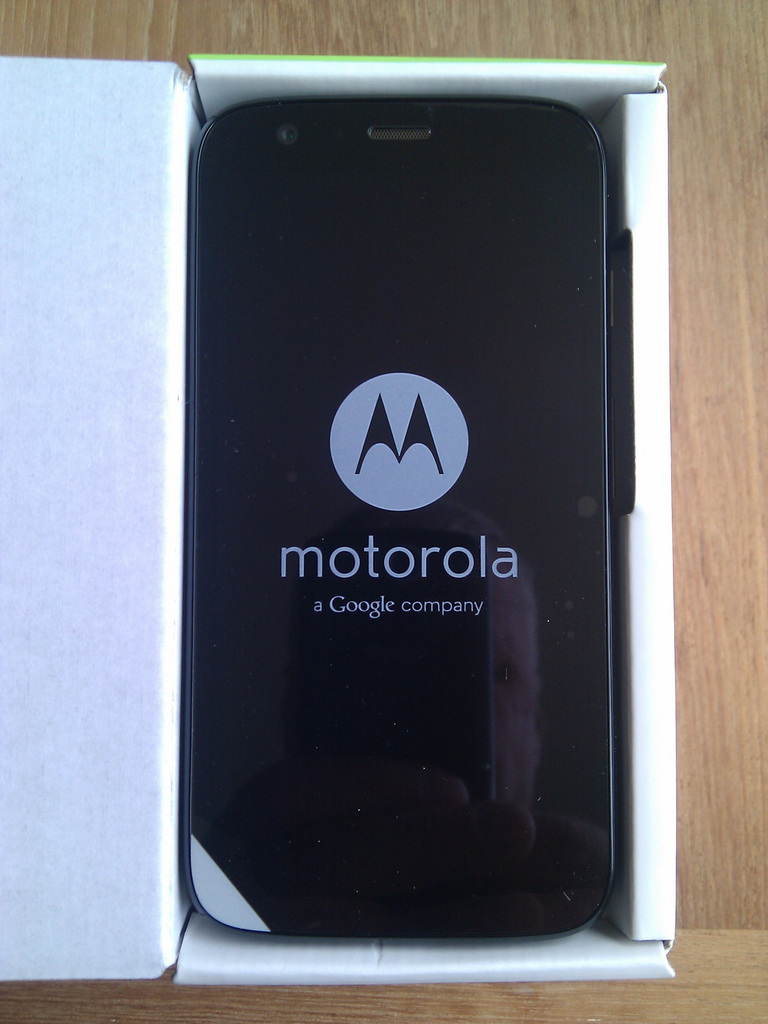| Very interesting news this week about Google’s acquisition of Motorola Mobility (MMI). Here is an excerpt from an article in The New York Times describing the deal: Google to Buy Motorola Mobility for $12.5 Billion In a bid to strengthen its mobile business, Google announced on Monday that it would acquire Motorola Mobility Holdings, the cellphone business that was split from Motorola, for $40 a share in cash, or $12.5 billion. The offer — by far Google’s largest ever for an acquisition — is 63 percent above the closing price of Motorola Mobility shares on Friday. Motorola manufactures phones that run on Google’s Android software. Android has become an increasingly important platform for Google, as global smartphone adoption accelerates. The platform, launched in 2007, is now used in more than 150 million devices, with 39 manufacturers. The acquisition would turn Google, which makes the Android mobile operating system, into a full-fledged cellphone manufacturer, in direct competition with Apple. (For entire Story click here) Clearly this union will have a ripple effect through the mobile industry – both on the hardware and software/content sides. There are several reasons why each company would want this deal (which I will discuss below). However, my first impression is that this is a win for Motorola Mobility, but a defensive and risky move for Google. Perhaps Google had few other ways to protect the future of its Android-centric mobile strategy, but I predict it will be difficult for Google to achieve a desirable return on their $12.5 Billion investment. The Motorola Mobility Perspective – This was arguably an optimal outcome for MMI. The company, a onetime market leader in mobile technology - with some 24,500 existing and pending patents – has become an industry also ran. In recent years it has fallen behind competitors like Apple, Samsung, HTC and even RIM, losing share in the fast evolving space. Getting $40 per share for the company is a favorable exit for long-suffering investors such as Carl Icahn. Landing in the arms of juggernaut Google makes CEO Sanjay Jha look like a shrewd dealmaker and savvy salesman. The Google Perspective – It’s understandable (and widely reported) that Google saw real value in Motorola Mobility’s intellectual property – it needed MMI’s patents to fend off a slew of Android-related lawsuits coming from the likes of Apple and Microsoft. Google also gets MMI’s established line of hardware products: phone handsets will help control the fragmentation of its Android OS, while TV set-top box technology helps boost Google’s web-enabled TV product offerings. But there are serious challenges to making this marriage work. Google’s track record in consumer-electronics is brief and poor: its Nexus One phone product was a flop, and sales of Google TV have also under-performed. In trying to vertically integrate, perhaps Google is jeopardizing its core competency in content and search – is selling tangible, consumer-oriented products in the company’s DNA? Also, Google will now find itself competing with handset “partners” who use the Android mobile OS – an awkward conflict of interest. Lastly, the cultures of Motorola and Google are vastly different. Integration of these two large organizations (19,000 and 29,000 employees, respectively) will require a major commitment of management’s time, energy, and patience – things they are hard-pressed to spare. Even if Google later sheds the hardware business in a sale or a spin-off (at a big discount without patents), it will still have ended up paying quite a bit for a bunch of patents. I hope I am wrong, but I predict that this acquisition will end up being a huge drag on Google’s strategic focus, as well as its long-term Return on Invested Capital. |
|
0 Comments
Leave a Reply. |
AuthorLuke Grant is an experienced marketing and business development executive, with over 15 years of experience in e-commerce, marketing technology, mobile and consumer electronics. Archives
May 2020
All
|

 RSS Feed
RSS Feed
